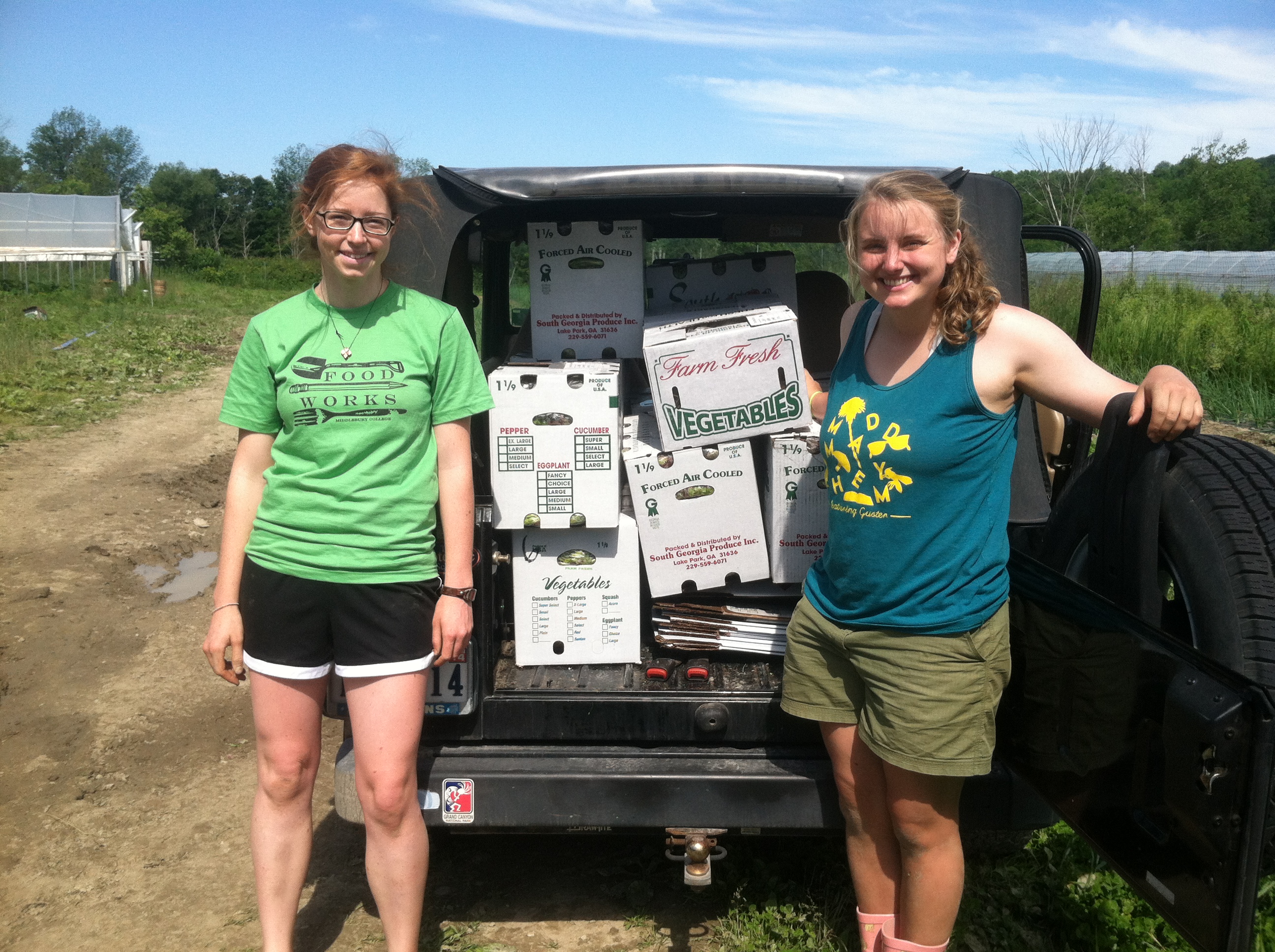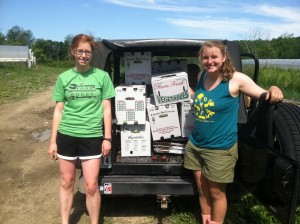For our Food Challenge, Linnea and I wanted to tackle food waste. We did a little investigative research to learn more…
Author: Jessica Parker
A blog post about a blog (and gleaning)

For my FoodWorks internship, I’ve been coordinating the gleaning program for the Rutland Area Farm and Food Link (RAFFL). What is gleaning, you ask? Gleaning is the act of harvesting excess produce for donation. RAFFL partners with farmers, volunteers, and food service organizations to deliver fresh, local produce to those who need it in Rutland County. RAFFL practices three gleaning methods: collecting donations at the end of the Rutland Farmer’s Market, picking up bulk amounts of food directly from farms, and organizing volunteers to harvest produce directly from farmers’ fields. Last year alone, RAFFL’s Glean Team collected 14,686 pounds of produce that was donated to 19 charities thanks to 18 farms and 236 volunteer hours. So far this season, the Glean Team has collected over 5,000 pounds of local produce.
Gleaning is not just about increasing access to local foods and preventing food waste. It’s also about giving community members the opportunity to visit a local farm and develop a closer relationship to where their food comes from. The majority of people that I’ve gleaned with have never harvested crops before or seen how a farm functions on a typical day. Folks walk away from a gleaning with a greater appreciation of the work that goes into food production as well as a personal connection to a local farm.
I’ve created a blog that documents my gleaning experiences this summer. Check it out!
http://gleaningraffl.wordpress.com/
April and Jordan joined me for a gleaning at Dutchess Farm back in June. They harvested 20 pounds of radishes and 95 pounds of lettuce mix!
Bernheim Arboretum and Research Forest
Mission Statement: Bernheim will be a nationally treasured leader in ecological stewardship that inspires the exploration of our deep connections with nature.
Bernheim Arboretum and Research Forest is designing an innovative sustainable community garden which highlights the relationships of plants and people, demonstrates sustainable design and ecosystem gardening techniques, sparks and expands the imagination, and enlightens the principles of science and nature in living systems. The Edible Garden project is an applicant to the Living Building Challenge (www.living-future.org), a rigorous design challenge that requires consideration of all aspects of design as they relate to the long-term ecological footprint.
FoodWorks Intern: Masha Lafen
Supervisor: Claude Stephens, Facilitator of Outreach and Regenerative Design




